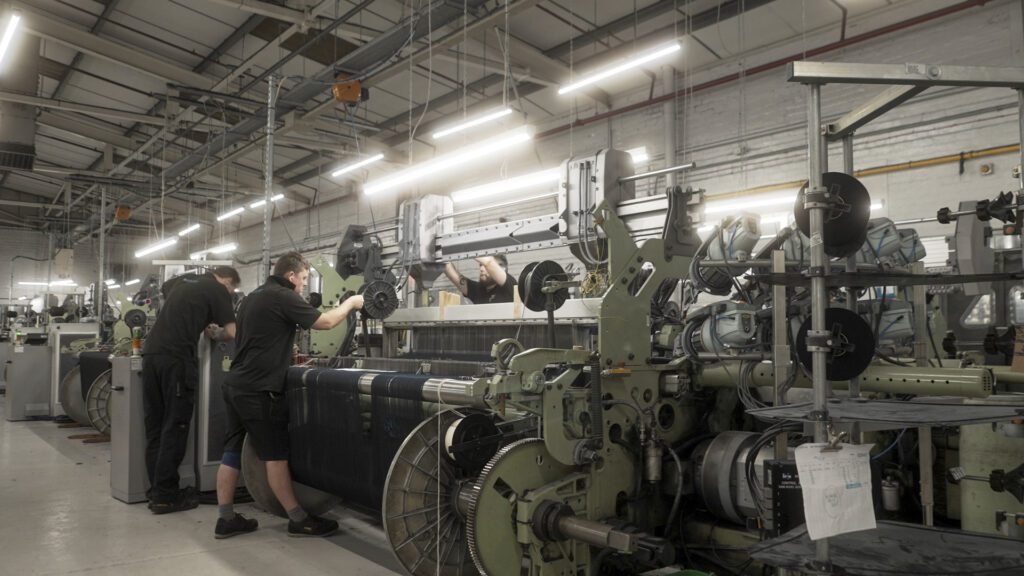Are you missing out on energy compensation schemes?
28/08/2024
3-minute read | Compensation schemes and rebates – Changes to eligibility criteria
“In addition to the climate change agreements (CCA) that some textile manufacturers may already hold, the government has implemented various compensation and discount schemes of which the scope of eligibility has widened recently.”
The low carbon and business energy experts from UKFT partner Envantage share 5 reasons why you may qualify now, when you did not qualify before. This is an essential read for UK manufacturers, financial and sustainability teams, and companies with a climate change agreement.
Are you missing out on energy compensation schemes?
As an energy-intensive industry, there is no escaping the significant financial burden that high electricity costs place on textiles businesses, eroding profit margins when business is already very challenging.
Energy efficiency – a topic we will revisit at a later date – can only take you part of the way in reducing the cost of powering your operations. This is because the energy (kWh) you use equates to just half of the charges that make up your bill. The remaining 50% are non-commodity charges, which include renewable energy policy contributions, network charges and capacity costs.
The impact of non-commodity charges
Non-commodity energy charges are only set to increase as the deadline for Net Zero edges closer and the UK Government ramps up its efforts to meet decarbonisation goals.
For energy intensive businesses like yours, this presents something of a ‘double hit’. Although the price of the electricity you use may have come down from its peak, the market remains well above historical levels. Combine this with a high level of non-commodity costs, which include a much higher level of green taxation compared to your EU and global competitors, and it makes for a challenging operating environment.
But there is some good news: To reduce the disadvantage these non-commodity charges can pose to UK industry, the government has implemented various compensation and discount schemes to alleviate this pressure for certain eligible manufacturing sectors, including textiles. These are in addition to the climate change agreements (CCA) that some textile manufacturers may already hold.

Key schemes include:
Energy Intensive industries Exemption Scheme, known as ‘EII’
Eligible businesses receive a 100% reduction on the costs for funding Contracts for Difference (CFD), the Renewables Obligation (RO), the small-scale Feed in Tariff (FIT), and GB Capacity Market (CM). Network charge compensation (NCC) is also now in scope, with payments expected from 2025.
ETS / CPS compensation
A smaller number of industries – including those operating in the textiles sector – can secure compensation for the Emissions Trading Scheme (ETS) and Carbon Price Support (CPS) charges that are added to their electricity bills.
Making an eligible product is just the first hurdle to secure these savings, as the schemes can only be claimed by those that also meet strict eligibility criteria relating to electricity consumption and financial performance over a historic period.

Five reasons why you should review your eligibility for compensation schemes now…
- More companies are now in scope for the savings under EII: This scheme is undergoing a series of changes, and the scope of eligibility has widened. One of the reasons that companies dismiss the EII scheme is because they don’t think they make an eligible product. Often this is because they overlook interim stages of production.
- Your income has dipped: Difficult trading conditions may have affected your financial performance, and this could mean you are now eligible to claim compensation.
- Changes in operations: Your energy usage profile may have altered since you last checked your eligibility for scheme savings. It’s always worth a regular review as you may be entitled to something now that you didn’t qualify for previously.
- You might have been turned down previously by mistake: Navigating these schemes isn’t always easy and we know from experience that many companies who can claim this relief have previously been mistakenly informed that they don’t meet the criteria.
- The benefits of the schemes for eligible businesses are increasing: Businesses who think they might be eligible simply cannot afford to overlook this opportunity. The savings from some of these schemes can equate to hundreds of thousands, if not millions, of pounds.
Despite the scale of the savings on offer, we know that too many eligible businesses are still missing out. Indeed, in our recent UK Energy Markets Webinar Poll, 86% of energy intensive companies said they are not well-informed about energy bill discounts and compensation schemes available to their business.
To find out more, please contact Envantage to discuss if your business qualifies for discounts on non-commodity charges in your electricity bills.
About Envantage
Envantage Ltd supports the textiles industry and other major energy users, helping them to buy and use energy in the most effective way to cut both costs and carbon emissions. Their specialist carbon and energy consultants can advise on how to meet your regulatory obligations in a way that aligns with your net zero and business goals.
To talk about your carbon and energy needs, contact Jessica Harris at Jessica.harris@envantage.co.uk or 0161 448 7722.
